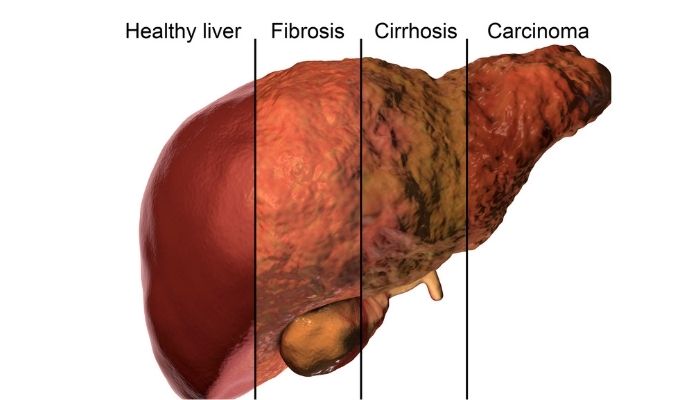You may find many wine aficionados throughout the world who love to relax at the end of a hectic day by drinking a glass of red wine. Red wine is a powerhouse of antioxidants, thus it has many health benefits including heart disease prevention, diabetes management, cancer management, and so on. The experts also recommended drinking red wine with moderate consumption.

But you may not realise when you cross the thin line between moderate drinking and start drinking wine excessively. Here, we are going to discuss some common disadvantages of red wine if you consume it excessively. Drinking red wine excessively increases the risk of heart diseases, hypertension, depressive disorders, stroke, neurodegeneration, osteoporosis, and obesity.
What is Red Wine?
Red wine is made by squeezing and fermenting dark-colored, whole grapes. The markets are flooded with different types of red wine that may vary in taste and color. Common varieties are Shiraz, Merlot, Cabernet Sauvignon, Pinot noir, and Zinfandel. The alcohol amount in red wine is 12-15%. Consuming red wine moderately shows a plethora of health benefits, but its excessive consumption can be harmful for your health.13 Disadvantages Of Red Wine Consumption
Many people are not aware about the side effects that red wine causes when it is consumed in an extravagant manner. Let’s take a look at some common disadvantages of drinking red wine.
1. Heart Problems
Red wine is beneficial for your cardiovascular health. This reduces your blood pressure and minimizes the level of cholesterol; thus, it decreases the chances of heart attack risk. But excessive consumption of red wine may lead to some serious diseases for your heart, including atrial fibrillation (a type of rapid or irregular heartbeat).
A study was published in January 2021 in the European Heart Journal and it is claimed that daily alcohol consumption may enhance a person's risk of atrial fibrillation by 16%.
2. Liver Disease (Cirrhosis)
If you consume alcohol, including red wine for a prolonged time, then this can lead to serious liver health issues like cirrhosis.
A liver study was conducted by the European Association in 2015 and it was revealed if a person consumes more than the "moderate" threshold, then this can increase the prevalence of alcohol-induced cirrhosis by 11.13%. Moderate alcohol consumption means 1-1.5 glasses for females and 1-2 glasses for males per day. If you drink too much alcohol for several years, your liver may stop functioning properly. Alcoholic liver cirrhosis may lead to death.
3. Fetal Alcohol Spectrum Disorder
Pregnant women should avoid alcohol consumption, including red wine as this may have long-term effects on a child. Some experts believe that an unborn baby may suffer from some negative side effects if the mother is being exposed to alcohol continuously.- Unusual facial features
- Smaller in size than other normal children
- Learning problems
- Behavior problems
- Birth defects
4. Greater Risk of Breast Cancer
If you have a family history of breast cancer, you should avoid consuming alcohol or wine. Even moderate consumption may enhance the risk of breast cancer.
Drinking alcohol uplifts the level of estrogen and increases the rate of tumor progression. In 2006 a study was published in the Annals of Epidemiology and it is revealed just one or two drinks per day can enhance a person's breast cancer risk between 30 and 50%. Also Know: Know The Symptoms Of Breast Cancer
5. Greater Risk of Esophageal cancer
Alcohol consumption will not only enhance the risk of breast cancer but also increase your risk of getting tongue and esophageal cancer.
A study was published in PLoS One in 2017 and it is mentioned that one glass of alcoholic beverage can enhance the risk of esophageal cancer. So, a single glass of alcohol or wine can impact your health in a big way.
6. Sulfite Reactions
Wine contains a good amount of sulfite. No wine, including organic wines, can be found without this content. People who are allergic to sulfites may suffer from hives, nausea, and anaphylactic shock. Some may even get asthmatic attacks.7. Migraine Headaches
Several medical studies suggest that red wine may trigger migraine headaches in some people.
Tannins and phenolic flavonoids are the common ingredients of red wine and these two are responsible for headaches. If the fermentation process can be modified, then this may lessen the risk of headaches caused by tannins and phenolic flavonoids.
8. Greater Risk of Rosacea
Do you want to make your skin radiant and glowing?Then, you should avoid drinking wine. Several studies have shown that there is an increase in the number of blood vessels in the cheeks of wine lovers. This indicates that red wine is associated with rosacea.
9. Worsens your PMS
Drinking wine may aggravate the symptoms of premenstrual syndrome and premenstrual dysphoric disorder.
During this time, hormonal changes occur from gut inflammation due to direct exposure to alcohol or red wine. So, red wine may worsen your PMS symptoms. Also Read: 9 Health Problems Related To Menstruation
10. Weight Gain
Drinking wine or alcoholic beverages may increase your body weight. Alcohol contains calories and triglycerides that will uplift the levels of bad cholesterol or “LDL”.11. Prescription Drug Reactions
If you are taking certain prescribed drugs, then consult your doctor before consuming red wine or alcoholic beverages. The adverse reactions may happen if you consume red wine while taking medications.12. Toxicity in the body
13. Increased risk of alcoholism
People who consume red wine regularly in moderate to large amounts can develop dependence on alcohol to live their lives. This can severely impact their physical and mental health and overall quality of life. People who develop alcoholism may also end up in legal troubles due to their behaviour after alcohol consumption. They may also need to go to a rehabilitation centre to recover, and their social life may even get impacted in a negative manner.
Some Advantages of Red Wine
Here are some advantages of red wine when consumed in moderation:- Improves blood pressure
- Good for your heart
- Manages diabetes
- Cancer management
- Good for skin
- Promotes a healthy life
- Improves brain health
How To Overcome The Side Effects Of Red Wine
Red wine has a spectrum of benefits if you consume it moderately. Red wine has antioxidant, anti-inflammatory, and possesses lipid-improving effects on the body. But drinking red wine is not healthy for everyone. If you drink above moderate amounts, you may face some severe health issues, which is one of the biggest disadvantages of red wine.- Contribution of Red Wine Consumption to Human Health Protection. National Library of Medicine. https://www.ncbi.nlm.nih.gov/pmc/articles/PMC6099584/ .Accessed April 15, 2023.
- Are There Health Benefits To Drinking Red Wine?. WebMD[Internet]. https://www.webmd.com/diet/health-benefits-red-wine .Accessed April 16, 2023.
- Is red wine actually good for your heart?. Harvard Health Publishing[Internet]. http://www.health.harvard.eduwww.health.harvard.edu/blog/is-red-wine-good-actually-for-your-heart-2018021913285 .Accessed April 17, 2023.
- Red wine and your health: Facts and myths. MD Anderson Cancer Center, University of Texas[Internet]. https://www.mdanderson.org/publications/focused-on-health/red-wine-health-benefits-facts-and-myths.h23-1591413.html .Accessed April 18, 2023.
- Is red wine good for you?. MedicalNewsToday[Internet]. https://www.medicalnewstoday.com/articles/265635 .Accessed April 20, 2023.



